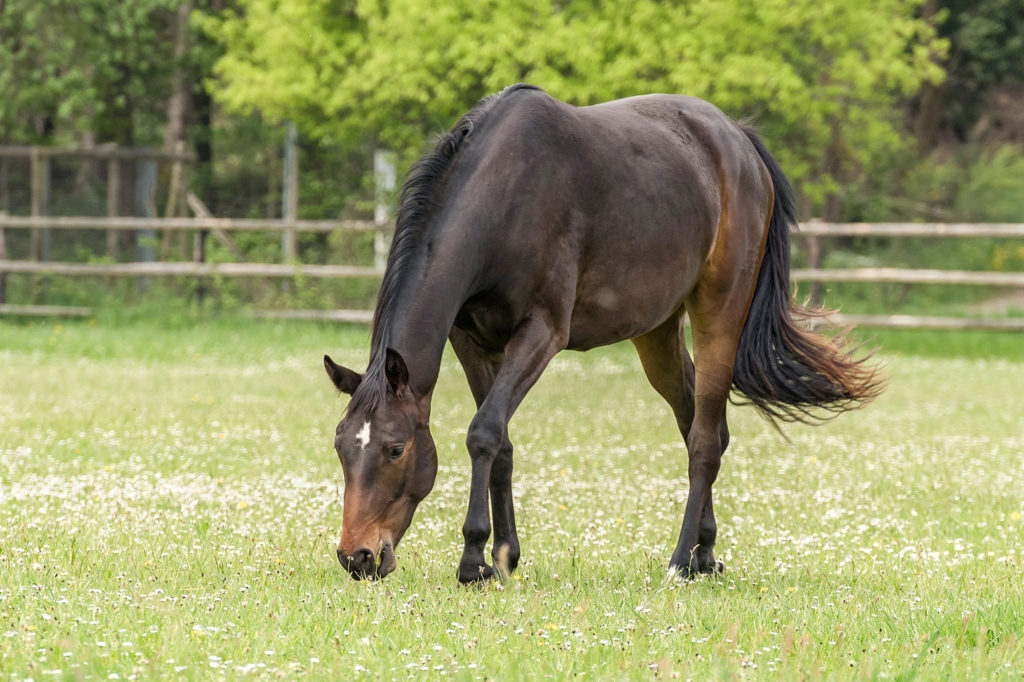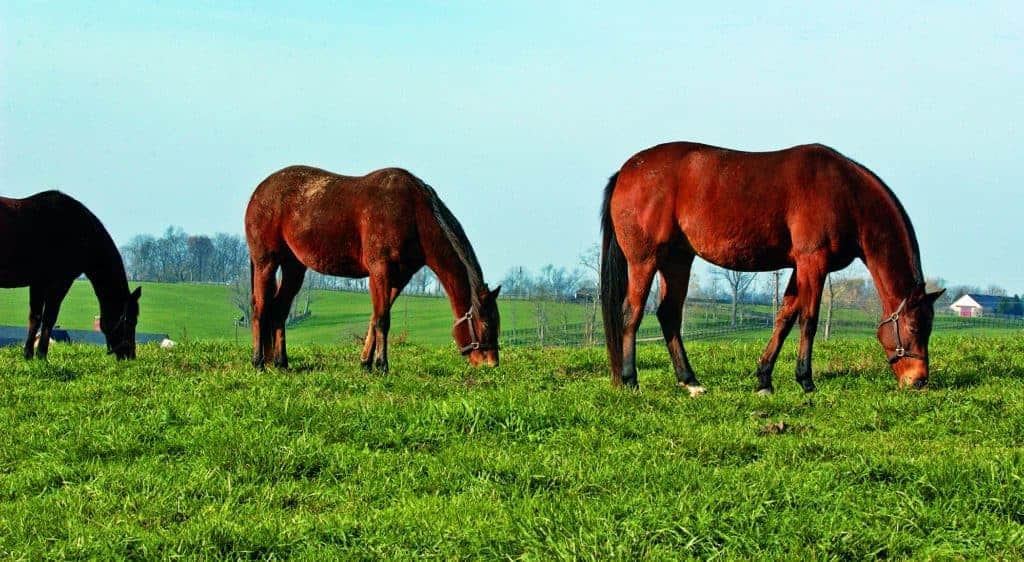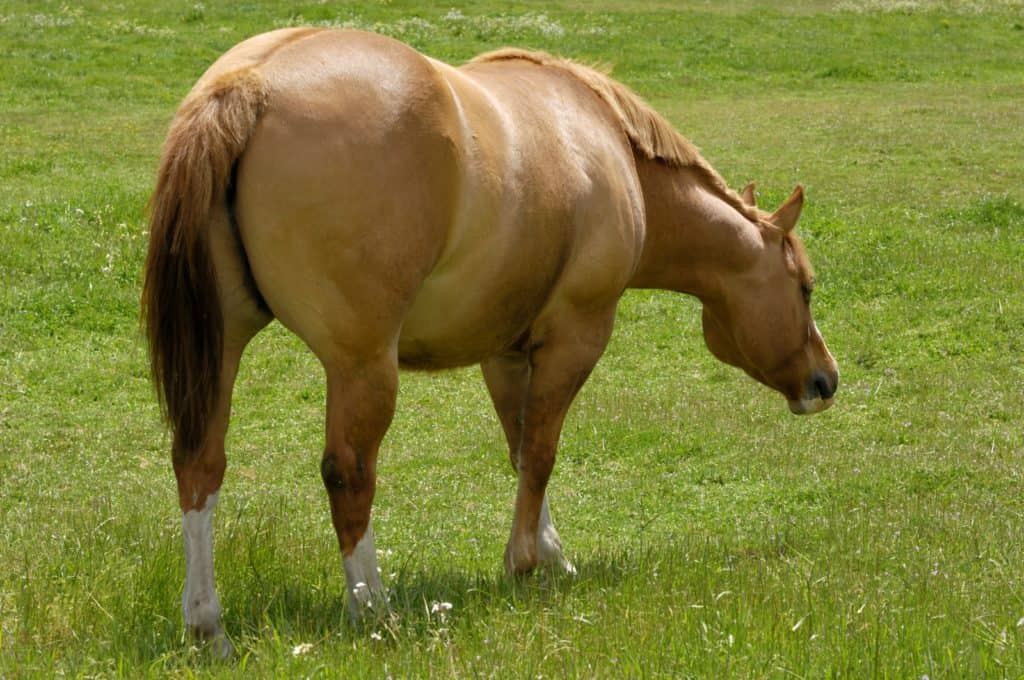
Product Review: Triple Crown Senior
A picky 4-year-old OTTB in transition didn’t like to eat much until our digital managing editor tried feeding her Triple Crown Senior.
Proper feeding practices for foals, adult horses, and older horses

A picky 4-year-old OTTB in transition didn’t like to eat much until our digital managing editor tried feeding her Triple Crown Senior.

Human nutritionists encourage eating whole foods and avoiding processed ones. Does the same logic apply to our horses?

Learn about forage types and how to select the right one for your horse’s pasture.

These automatic feeders reduce chore time and ensure horses get measured, frequent meals. They are also backed by research.

Copper is involved energy production, iron metabolism, connective tissue formation, central nervous system function, and melanin production. Is your horse getting enough? If you only feed forage, probably not.

Mares in good body condition have a reservoir of stored fat that can be used during cold winter weather.

Gastric disease develops most commonly in the squamous region, when stomach acid splashes onto that vulnerable area of tissue. Why it develops in the glandular region—and how to prevent and treat it—is less clear. Five researchers discuss what we do know about equine glandular gastric disease.

Do you have a cinchy horse? Follow this step-by-step advice to modify his behavior.

Reduced performance, including a shorter stride length, is likely a consequence of pain caused by equine gastric ulcers.

Learn how to help your overweight horse shed pounds in a safe and healthy way.

Non-steroidal anti-inflammatory drugs serve an important role in managing equine pain and inflammation, but sometimes they can do more harm than good.

What’s the best way to soak horses’ hay to reduce dust and sugar content?

Learn about the risk factors associated with horses getting gastric ulcers, as well as diagnosis and basic management and treatment.

Both NSAIDs induced GI tract inflammation, but phenylbutazone might result in more severe inflammation in the lower GI tract.

How do you ensure a horse that’s reluctant to use his salt block and refuses to eat loose salt in his ration is getting enough?

Camping is all about simplicity and going back to nature, but adding horses to the picture means you must make many more considerations. Our sources shared their top tips for getting ready to go horse camping.
Stay on top of the most recent Horse Health news with
"*" indicates required fields